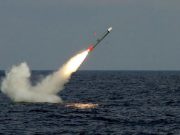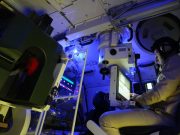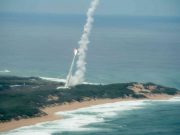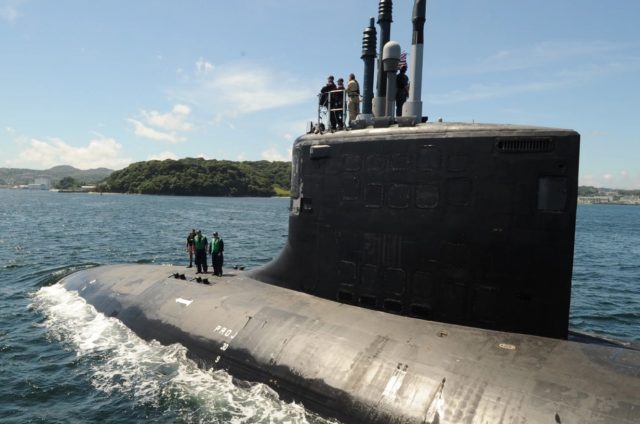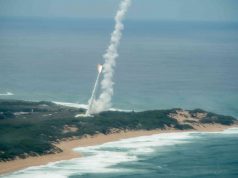The FBI and the Naval Criminal Investigative Service (NCIS) have arrested a US Navy nuclear engineer and his wife for trying to sell classified information related to the performance of nuclear reactors on Virginia-class submarines to a foreign power.
Jonathan and Diana Toebbe were arrested in Jefferson County, West Virginia, on October 9 and will have their initial appearances in the federal court in West Virginia on October 12.
According to information released by the Department of Justice, Jonathan and his wife sold information known as restricted data concerning the design of nuclear-powered warships to a person they believed was a representative of a foreign power. In actuality, that person was an undercover FBI agent. The Toebbes have been charged in a criminal complaint alleging violations of the Atomic Energy Act.
“The complaint charges a plot to transmit information relating to the design of our nuclear submarines to a foreign nation,” said Attorney General Merrick B. Garland. “The work of the FBI, Department of Justice prosecutors, the Naval Criminal Investigative Service and the Department of Energy was critical in thwarting the plot charged in the complaint and taking this first step in bringing the perpetrators to justice.”
Jonathan Toebbe is an employee of the US Navy who served as a nuclear engineer and was assigned to the Naval Nuclear Propulsion Program, also known as Naval Reactors. He held an active national security clearance through the US Department of Defense, giving him access to restricted data. Toebbe worked with and had access to information concerning naval nuclear propulsion including information related to military sensitive design elements, operating parameters and performance characteristics of the reactors for nuclear powered warships.
The complaint affidavit alleges that on April 1, 2020, Jonathan Toebbe sent a package to a foreign government, listing a return address in Pittsburgh, Pennsylvania, containing a sample of restricted data and instructions for establishing a covert relationship to purchase additional restricted data.
“I apologize for this poor translation into your language. Please forward this letter to your military intelligence agency. I believe this information will be of great value to your nation. This is not a hoax,” Toebbe wrote in the letter.
The affidavit also alleges that, thereafter, Toebbe began corresponding via encrypted email with an individual whom he believed to be a representative of the foreign government. The individual was really an undercover FBI agent. Jonathan Toebbe continued this correspondence for several months, which led to an agreement to sell restricted data in exchange for thousands of dollars in cryptocurrency.
On June 8, 2021, the undercover agent sent $10,000 in cryptocurrency to Jonathan Toebbe as “good faith” payment. Shortly afterwards, on June 26, Jonathan and Diana Toebbe traveled to a location in West Virginia. There, with Diana Toebbe acting as a lookout, Jonathan Toebbe placed an SD card concealed within half a peanut butter sandwich at a pre-arranged “dead drop” location.
After retrieving the SD card, the undercover agent sent Jonathan Toebbe a $20,000 cryptocurrency payment. In return, Jonathan Toebbe emailed the undercover agent a decryption key for the SD Card. A review of the SD card revealed that it contained restricted data related to submarine nuclear reactors.
On Aug. 28, Jonathan Toebbe made another “dead drop” of an SD card in eastern Virginia, this time concealing the card in a chewing gum package. After making a payment to Toebbe of $70,000 in cryptocurrency, the FBI received a decryption key for the card. It, too, contained restricted data related to submarine nuclear reactors. The FBI arrested Jonathan and Diana Toebbe on Oct. 9, after he placed yet another SD card at a pre-arranged “dead drop” at a second location in West Virginia.
The court papers released by the Department of Justice regarding the case show how the FBI earned Toebbe’s trust and lured him into sharing the classified data with what he believed was a foreign country.





